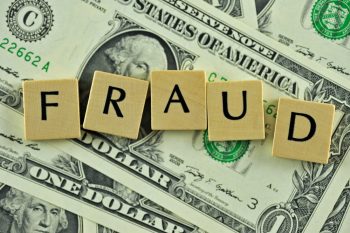Colts Neck NJ Forgery Defense Attorneys

For example, forgery can be considered a third or fourth-degree crime, with third-degree charges applicable to any and all cases involving fraudulent checks. A third-degree conviction can result in a sentence to serve between 3 and 5 years in New Jersey State Prison. On the other hand, a fourth-degree charge for forgery is punishable by a maximum sentence of 18 months imprisonment. Regardless, these are felony-level offenses, meaning that they are subject to indictment by grand jury and further adjudication at the Superior Court in the county in which the alleged offense occurred. Ultimately, a conviction will appear as a felony charge on your criminal record, which may serve as a hindrance as you pursue employment and other opportunities in the future.
to Your Way Through The Criminal Justice System What Should I do if
I was Charged with a Crime in New Jersey?
At Chamlin, Uliano & Walsh, our criminal defense team is led by Partner Charles J. Uliano, a former Monmouth County Prosecutor who is Certified by the New Jersey Supreme Court as a criminal trial attorney. Under his guidance, we apply a discerning approach to each and every case, examining the circumstances from every angle in order to create the most effective defense strategies. Whether the best resolution involves an outright dismissal, downgraded charges, or enrollment in a diversionary program such as Pre-Trial Intervention, we will thoroughly investigate every avenue in order to protect your interests. Contact us at our Monmouth County offices anytime at 732-440-3950 or call toll free at 888-328-9131 for additional information.
Charges for Forgery in New Jersey: N.J.S.A. 2C:21-1
The criminal charge of forgery is outlined in section N.J.S.A. 2C:21-1 of the New Jersey Criminal Code, which mandates:
“A person is guilty of forgery if, with purpose to defraud or injure anyone, or with knowledge that he is facilitating a fraud or injury to be perpetrated by anyone, the actor:”
a. Alters or changes any writing of another without his authorization;
b. Makes, completes, executes, authenticates, issues or transfers any writing so that it purports to be the act of another who did not authorize that act or of a fictitious person, or to have been executed at a time or place or in a numbered sequence other than was in fact the case, or to be a copy of an original when no such original existed; or
c. Utters any writing which he knows to be forged in a manner specified in paragraph (1) or (2)
For the purposes of this statute, the term “writing” includes printing or any other method of recording information, money, coins, tokens, stamps, seals, credit cards, badges, trademarks, access devices, and other symbols of value, right, privilege, or identification, including retail sales receipts, universal product code (UPC) labels and checks. This section shall apply without limitation to forged, copied or imitated checks.
Penalties for Forgery in New Jersey
As explained above, forgery can be considered a third or fourth-degree crime, and in certain circumstances, a disorderly persons offense, depending on the specific document(s), writing(s), or article(s) associated with the alleged offense. The degree of these charges are delineated as follows:
Forgery is a Third Degree Crime: punishable by a term of incarceration ranging from 3 to 5 years in New Jersey State Prison; applicable when the forged writing involves:
- Money, securities, postage, licenses, or other instruments issued by the government,
- Corporate securities and other documents indicating property ownership such as deeds
- Documents of personal identification
- Checks
Forgery as a Fourth Degree Crime: punishable by a term of incarceration of up to 18 months in New Jersey State Prison; applicable when the forged writing involves items other than those listed above
Forgery as a Disorderly Persons Offense: punishable by a sentence to serve up to 6 months in the county jail; applicable only in instances wherein the offense involves a single forged or altered sales receipt or UPC label
Contact Monmouth County NJ Forgery Lawyers for Answers
Finding the answers to your questions is the first step toward protecting your future. Our knowledge and experience can ensure that you make informed decisions throughout the complex legal process. To speak with a member of our seasoned criminal defense team, contact us at our Asbury Park or West Long Branch office locations. We are available anytime at 732-440-3950 or toll-free at 888-328-9131 to discuss your case.
